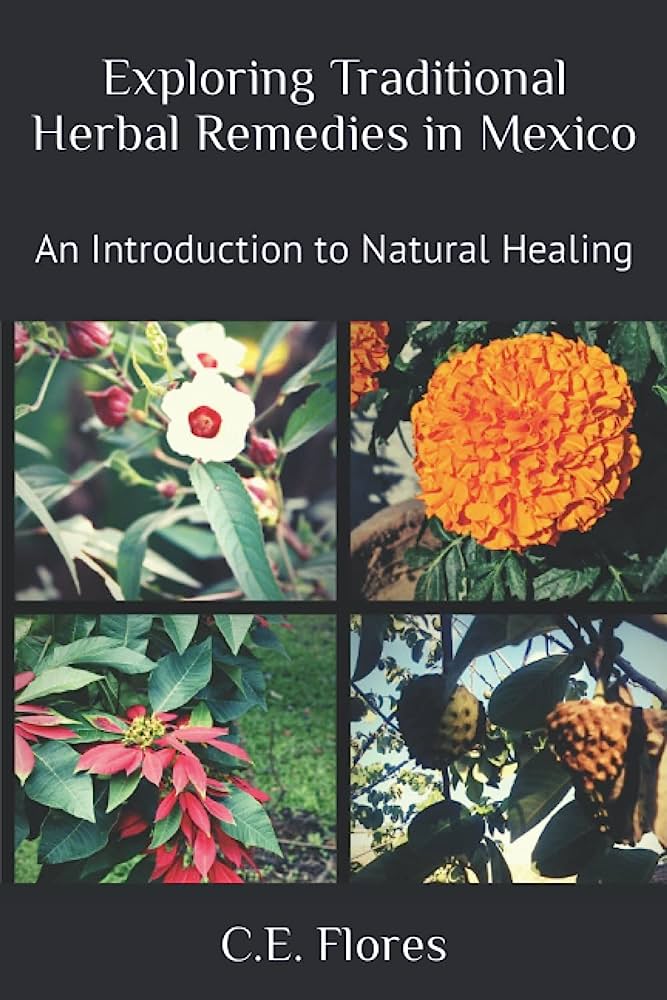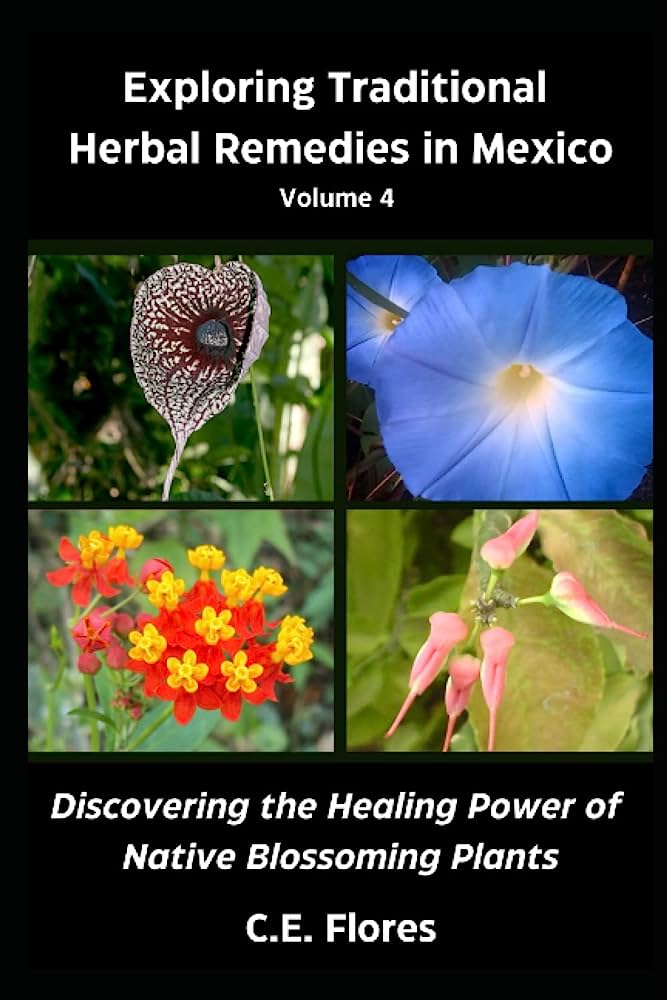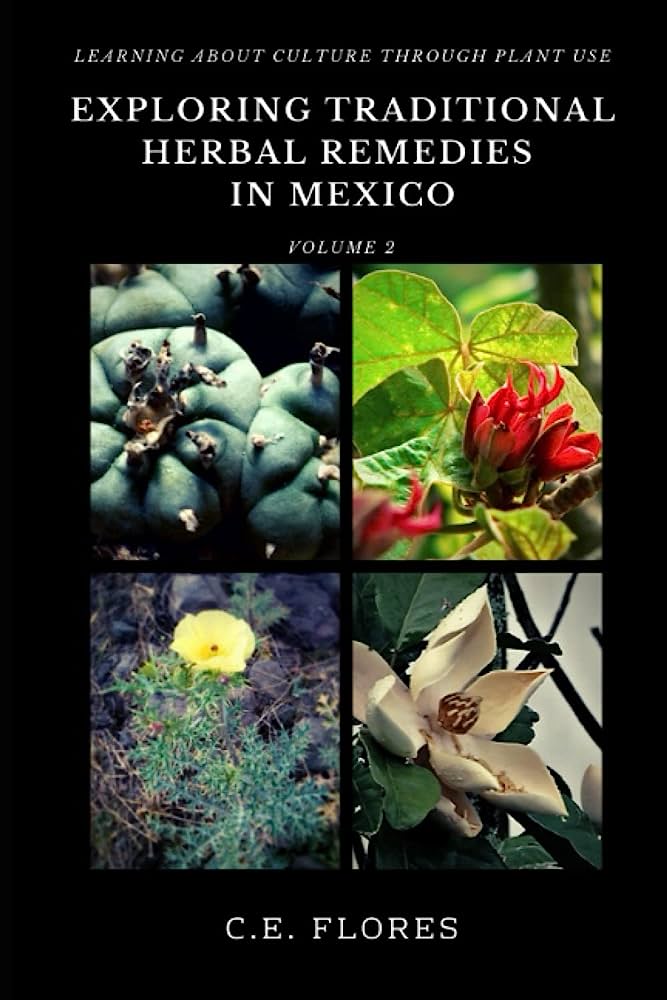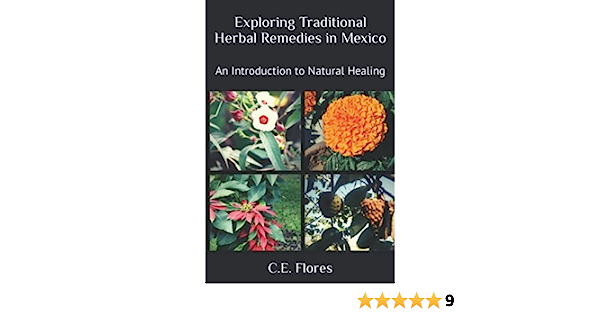So, have you ever wondered about Mexico’s ancient health secrets? You know, the traditional herbal remedies that have been passed down through generations? Well, get ready because I’m about to take you on a journey to uncover Mexico’s hidden gems in the world of natural health.
Mexico is not only known for its stunning beaches, rich history, and vibrant culture, but also for its deep-rooted traditions in herbal medicine. For centuries, the indigenous peoples of Mexico have relied on the healing properties of various plants and herbs to treat a wide range of ailments and promote overall wellness. From the majestic agave plant used to produce tequila, to the soothing powers of chamomile and mint, there is a treasure trove of medicinal plants waiting to be explored.
In our upcoming article, we will delve into the fascinating world of Mexico’s traditional herbal remedies, sharing with you some of the most well-known plants and herbs used for healing purposes. From the mighty aloe vera to the fragrant lavender, we will discuss the benefits, preparation methods, and common uses of these natural remedies. So, if you’re curious about discovering alternative ways to support your health or simply want to expand your knowledge on the topic, stay tuned for our in-depth guide to Mexico’s ancient health secrets.

Introduction to Mexican Traditional Herbal Remedies
Mexico, a country known for its rich culture, vibrant traditions, and colorful festivals, is also home to a treasure trove of ancient health secrets. For centuries, the people of Mexico have relied on traditional herbal remedies to treat various ailments and promote overall well-being. These remedies, passed down from generation to generation, are deeply rooted in the country’s history and hold immense significance in Mexican culture.
In this guide, we will explore the history, cultural significance, and benefits of traditional herbal remedies in Mexico. From healing plants used in Mexican traditional medicine to specific remedies for various health concerns, we will uncover the ancient wisdom that continues to thrive in modern times.
Understanding the History and Importance of Traditional Herbal Remedies
The use of herbal remedies in Mexico dates back to ancient times, long before the arrival of the Spanish conquistadors. The indigenous people of Mexico, such as the Aztecs and Mayans, possessed a deep understanding of the healing properties found in their native plants. They believed that nature provided them with powerful tools for maintaining health and treating illnesses.
Traditional Mexican herbal remedies have remained an integral part of the cultural practices and oral traditions of the indigenous communities. Despite the influence of modern medicine, these remedies have managed to preserve their relevance and gain recognition for their effectiveness. Today, traditional herbal medicine coexists alongside conventional medical treatments, allowing individuals to benefit from a holistic approach to healing.
Exploring the Cultural Significance of Herbal Remedies in Mexico
In Mexico, herbal remedies are not merely viewed as a means of treating physical ailments but are deeply intertwined with the cultural identity of the people. Traditional healing practices and the use of medicinal plants are considered sacred and are often passed down through generations as a way of preserving cultural heritage.
These remedies are closely associated with spirituality and are often used in rituals and ceremonies. They are believed to provide a connection between the physical and spiritual realms, promoting not just physical healing but also emotional and mental well-being. Traditional healers, known as curanderos or curanderas, play a vital role in Mexican society, using their knowledge of herbal remedies to promote healing and balance.
Visitors to Mexico have the opportunity to immerse themselves in this rich cultural heritage by exploring local markets and traditional healing centers. The vibrant colors, scents, and tastes of Mexican herbs and plants offer a sensory experience that showcases the country’s deep-rooted connection to nature and its healing properties.
Commonly Used Healing Plants in Mexican Traditional Herbal Remedies
Mexico boasts a diverse range of flora, with many plants possessing remarkable healing properties. Let us explore some of the commonly used healing plants in Mexican traditional herbal remedies.
Aloe Vera: The Soothing Wonder Plant
Aloe vera, known as “sábila” in Mexico, is a versatile plant renowned for its soothing properties. Its gel-like substance, extracted from the succulent leaves, is a popular ingredient in a variety of herbal remedies. Aloe vera is commonly used to treat burns, skin irritations, and wounds. It is also believed to have digestive benefits, aiding in soothing stomach discomfort and promoting healthy digestion.
Chamomile: Nature’s Calming Potion
Chamomile, or “manzanilla,” is a fragrant flower known for its calming and relaxing properties. It is commonly consumed as a tea to promote relaxation and alleviate symptoms of anxiety and insomnia. Chamomile is also used topically to treat skin conditions such as eczema and inflammation. Its gentle nature and pleasant aroma make it a beloved herb in Mexican traditional medicine.
Eucalyptus: A Breath of Fresh Air
Eucalyptus, known as “eucalipto,” is a powerful herb with numerous medicinal uses. Its leaves, when dried and distilled, release essential oils that are commonly used for respiratory health. In Mexico, eucalyptus oil is utilized in steam inhalations to relieve congestion, coughs, and cold symptoms. Its refreshing scent and therapeutic properties make it a go-to remedy for respiratory discomfort.
Mint: A Refreshing Herb with Multiple Benefits
Mint, or “menta,” is a refreshing herb widely used in Mexican cuisine and traditional medicine. It is known for its cooling and soothing properties, making it an effective remedy for indigestion, nausea, and headaches. Mint tea or infusions are often consumed after meals to aid digestion and provide relief from stomach discomfort. Its invigorating aroma and flavor make it a popular choice for promoting overall well-being.
Rosemary: From Culinary Herb to Health Tonic
Rosemary, or “romero,” is an herb commonly associated with culinary uses but also holds medicinal significance in Mexican traditional medicine. It is believed to have antioxidant and anti-inflammatory properties, making it a valuable herb for promoting overall health. Rosemary tea is often consumed to support digestion, improve memory and concentration, and relieve headaches. Its versatility and aromatic properties make it a staple in traditional herbal remedies.
Hibiscus: The Beautiful Flower with Healing Properties
Hibiscus, or “flor de jamaica,” is a vibrant flower that is not only visually appealing but also offers numerous health benefits. It is commonly consumed as a tea, known as “agua de jamaica,” and is rich in antioxidants and vitamins. Hibiscus tea is believed to have anti-inflammatory properties, aid in digestion, support heart health, and even lower blood pressure. Its tart and floral taste make it a refreshing beverage enjoyed throughout Mexico.

Traditional Herbal Remedies for Digestive Health
Maintaining good digestive health is essential for overall well-being. In Mexican traditional medicine, various herbs and plants are utilized to promote healthy digestion and provide relief from digestive discomfort. Let’s explore some traditional herbal remedies for digestive health.
Peppermint Tea: A Digestive Aid
Peppermint, or “menta,” has long been recognized for its beneficial effects on the digestive system. Peppermint tea, made by infusing dried peppermint leaves in hot water, is commonly consumed to relieve symptoms of indigestion, bloating, and stomach cramps. Its soothing properties help relax the muscles of the gastrointestinal tract, allowing for smoother digestion.
Ginger: The Natural Remedy for Nausea and Indigestion
Ginger, or “jengibre,” is a powerful root with antispasmodic and anti-inflammatory properties. It is widely used in Mexican traditional medicine to alleviate nausea, indigestion, and gastrointestinal discomfort. Ginger can be consumed as a tea or added to dishes for its warming and soothing effects on the digestive system.
Fennel: Soothing the Stomach and Aiding Digestion
Fennel, or “hinojo,” is a plant with a distinct licorice-like flavor and numerous medicinal properties. In Mexican traditional medicine, fennel seeds are commonly consumed to soothe the stomach and aid digestion. The seeds can be chewed directly or brewed into a tea. Fennel is believed to have carminative properties, relieving gas, bloating, and abdominal pain.
Cinnamon: Balancing Blood Sugar Levels and Improving Digestion
Cinnamon, or “canela,” is a fragrant spice cherished in Mexican cuisine and traditional herbal remedies. In addition to its delightful flavor, cinnamon is known to support healthy digestion and help balance blood sugar levels. It can be added to dishes, teas, or taken as a supplement to promote digestive health.
Herbal Remedies for Immune System Boosting
A strong immune system is crucial for maintaining good health and warding off illnesses. Mexican traditional medicine offers several herbal remedies for boosting the immune system and enhancing the body’s natural defense mechanisms.
Echinacea: Enhancing the Body’s Natural Defenses
Echinacea, or “equinácea,” is a herb known for its immune-boosting properties. Consuming echinacea tea or supplements is believed to stimulate the production of white blood cells, enhancing the body’s ability to fight off infections. Echinacea is often used as a preventative measure during times of seasonal change or when the immune system needs an extra boost.
Garlic: The Ancient Antibiotic and Immunity Enhancer
Garlic, or “ajo,” has been used for centuries as a natural antibiotic and immune system enhancer. It is rich in sulfur compounds that possess antimicrobial properties. Garlic is commonly consumed raw, cooked, or as a supplement to support immune health and protect against respiratory infections and other illnesses.
Oregano: Fighting Infections and Strengthening Immunity
Oregano, or “orégano,” is not just a popular herb in Mexican cuisine but also holds medicinal value. It is rich in antioxidants and has antimicrobial properties that can help fight off infections and strengthen the immune system. Oregano can be consumed as a tea, taken as a supplement, or used in cooking to enjoy its immune-boosting benefits.
‘Nopal’ Cactus: A Vital Plant for Immune Health in Mexico
The cactus known as ‘nopal’ has been an essential part of Mexican traditional medicine for centuries. The prickly pear cactus, scientifically known as Opuntia, is packed with nutrients, antioxidants, and immune-stimulating compounds. Consuming nopal in various forms, such as in salads, juices, or soups, is believed to enhance overall health and strengthen the immune system.

Herbal Remedies for Relaxation and Stress Relief
In today’s fast-paced world, finding moments of relaxation and relieving stress is crucial for maintaining overall well-being. Mexican traditional medicine offers several herbal remedies renowned for their calming properties. Let’s explore some of these remedies for relaxation and stress relief.
Lavender: Aromatic Herb for Calming the Mind
Lavender, or “lavanda,” is a fragrant herb known for its calming and soothing effects on the mind and body. The aroma of lavender essential oil, when inhaled or added to bath water, can promote relaxation, reduce anxiety, and improve sleep quality. Lavender is also commonly used in aromatherapy practices to create a peaceful and serene environment.
Valerian Root: Promoting Relaxation and Restful Sleep
Valerian root, or “valeriana,” is a herb used for centuries to promote relaxation and sleep. It is believed to have sedative properties that can help ease anxiety, nervousness, and insomnia. Valerian root is often consumed as a tea or taken in supplement form. Its calming effects make it an effective remedy for those seeking natural relaxation.
Passionflower: Easing Anxiety and Promoting Relaxation
Passionflower, or “pasiflora,” is a beautiful flowering plant known for its calming properties. Its leaves are commonly used to brew tea, which helps reduce anxiety, insomnia, and restlessness. Passionflower tea is known for inducing a sense of tranquility and relaxation, making it an ideal remedy for those seeking stress relief.
Traditional Herbal Remedies for Skin Care
The skin is the body’s largest organ and plays a vital role in overall health. Mexican traditional medicine offers various herbal remedies that nourish and support skin health. Let’s explore some of these remedies for skincare.
Aguacate (Avocado): Nourishing the Skin from Within
Avocado, or “aguacate,” is not only a delicious fruit but also a natural beauty powerhouse. It is rich in healthy fats, antioxidants, and vitamins that nourish the skin from within. Consuming avocados or applying avocado oil topically can help moisturize the skin, reduce inflammation, and promote a youthful and glowing complexion.
Calendula: Healing and Soothing Skin Conditions
Calendula, or “caléndula,” is a vibrant and versatile flower with soothing properties for the skin. Its petals contain compounds that help reduce inflammation, speed up wound healing, and soothe skin irritations. Calendula oil or creams can be applied topically to treat various skin conditions, such as eczema, rashes, and sunburn.
Maguey: Natural Fiber Offering Skin Benefits in Traditional Remedies
The maguey plant, also known as “agave,” is revered in Mexican traditional medicine for its versatile uses. The plant’s fibers, extracted from its leaves, are commonly used to produce natural skincare products. Maguey fibers can be used as gentle exfoliators, providing a natural way to remove dead skin cells and promote healthy, glowing skin.

Herbal Remedies for Respiratory Health
Respiratory health is essential for overall well-being, and Mexican traditional medicine offers various herbal remedies to support the respiratory system. Let’s explore some traditional remedies for respiratory health.
Mullein: Clearing the Airways and Relieving Respiratory Problems
Mullein, or “gordolobo,” is a plant known for its respiratory benefits. Its leaves and flowers are commonly used in teas and infusions to clear congestion, soothe irritation, and relieve respiratory symptoms. Mullein is believed to have expectorant properties, helping to expel mucus and improve breathing.
Eucalyptus: A Powerful Decongestant for Respiratory Relief
Eucalyptus, previously mentioned for its versatility, can also provide respiratory relief. Inhaling steam infused with eucalyptus oil helps clear the nasal passages, relieve congestion, and ease breathing difficulties. Eucalyptus is commonly used in chest rubs or added to hot water for steam inhalation.
Chaparral: Traditional Remedy for Respiratory Conditions
Chaparral, or “creosote bush,” is a shrub native to Mexico with a long history of use in traditional medicine. It possesses antimicrobial and expectorant properties that make it effective in treating respiratory conditions such as bronchitis and coughs. Chaparral can be consumed as a tea or used topically as a chest rub.
Traditional Herbal Remedies for Pain Relief
Chronic pain and discomfort can have a significant impact on one’s quality of life. Mexican traditional medicine offers various herbal remedies known for their pain-relieving properties. Let’s explore some of these remedies for pain relief.
Arnica: Soothing Natural Remedy for Bruises and Muscle Pain
Arnica, or “árnica,” is a perennial herb often used topically to relieve pain and reduce inflammation. It is commonly used to treat bruises, sprains, and muscle pain. Arnica ointments, creams, or gels can be applied to the affected area to promote healing and alleviate discomfort.
Willow Bark: Nature’s Aspirin for Pain Relief
Willow bark, or “corteza de sauce,” has been used as a natural pain reliever for centuries. It contains a compound called salicin, which is similar to the active ingredient in aspirin. Willow bark is often brewed into a tea or taken in supplement form to alleviate headaches, muscle pain, and joint discomfort.
Mint: Cooling Herb for Headaches and Migraines
Mint, previously mentioned as a digestive aid, can also provide relief from headaches and migraines. Applying peppermint essential oil or a menthol-based balm to the temples or forehead can help soothe tension and alleviate pain. Mint’s cooling properties provide a refreshing sensation that aids in reducing headache symptoms.

Herbal Remedies for Women’s Health
Women’s health concerns often require specific attention, and Mexican traditional medicine offers herbal remedies tailored to address these needs. Let’s explore some traditional herbal remedies for women’s health.
Yarrow: Relieving Menstrual Symptoms and Pain
Yarrow, or “milenrama,” is a flowering plant widely used in Mexican traditional medicine to relieve menstrual symptoms and pain. Drinking yarrow tea is believed to help regulate menstrual flow, reduce menstrual cramps, and alleviate symptoms such as bloating and mood swings.
Red Clover: Aiding Hormonal Balance in Women
Red clover, or “trébol rojo,” is a plant rich in compounds known as phytoestrogens. These compounds mimic the effects of estrogen in the body and can help support hormonal balance in women. Red clover tea or supplements are consumed to alleviate menopausal symptoms such as hot flashes, mood swings, and vaginal dryness.
Dong Quai: Traditional Herb for Menstrual Health
Dong quai, or “dona quai,” is an herb traditionally used in Chinese and Mexican traditional medicine for menstrual health. It is believed to have hormone-balancing properties and is often consumed as a tea or taken in supplement form to regulate menstrual cycles and relieve menstrual discomfort.
Traditional Herbal Remedies for Digestive Health
Maintaining good digestive health is essential for overall well-being. In Mexican traditional medicine, various herbs and plants are utilized to promote healthy digestion and provide relief from digestive discomfort. Let’s explore some traditional herbal remedies for digestive health.
Peppermint Tea: A Digestive Aid
Peppermint, or “menta,” has long been recognized for its beneficial effects on the digestive system. Peppermint tea, made by infusing dried peppermint leaves in hot water, is commonly consumed to relieve symptoms of indigestion, bloating, and stomach cramps. Its soothing properties help relax the muscles of the gastrointestinal tract, allowing for smoother digestion.
Ginger: The Natural Remedy for Nausea and Indigestion
Ginger, or “jengibre,” is a powerful root with antispasmodic and anti-inflammatory properties. It is widely used in Mexican traditional medicine to alleviate nausea, indigestion, and gastrointestinal discomfort. Ginger can be consumed as a tea or added to dishes for its warming and soothing effects on the digestive system.
Fennel: Soothing the Stomach and Aiding Digestion
Fennel, or “hinojo,” is a plant with a distinct licorice-like flavor and numerous medicinal properties. In Mexican traditional medicine, fennel seeds are commonly consumed to soothe the stomach and aid digestion. The seeds can be chewed directly or brewed into a tea. Fennel is believed to have carminative properties, relieving gas, bloating, and abdominal pain.
Cinnamon: Balancing Blood Sugar Levels and Improving Digestion
Cinnamon, or “canela,” is a fragrant spice cherished in Mexican cuisine and traditional herbal remedies. In addition to its delightful flavor, cinnamon is known to support healthy digestion and help balance blood sugar levels. It can be added to dishes, teas, or taken as a supplement to promote digestive health.
Herbal Remedies for Joint and Muscle Health
Maintaining healthy joints and muscles is crucial for mobility and overall well-being. Mexican traditional medicine offers various herbal remedies known for their beneficial effects on joint and muscle health. Let’s explore some of these remedies.
Turmeric: Natural Anti-inflammatory and Joint Support
Turmeric, or “cúrcuma,” is a golden spice with potent anti-inflammatory properties. Its active compound, curcumin, helps reduce inflammation and supports joint health. Turmeric can be added to dishes or consumed in the form of tea or supplements to enjoy its benefits for joint and muscle health.
Devil’s Claw: Relieving Joint and Muscular Pain
Devil’s Claw, or “garra del diablo,” is a plant native to Southern Africa that has found its way into Mexican traditional medicine. It is known for its analgesic and anti-inflammatory properties. Devil’s Claw is commonly consumed as a tea or taken in supplement form to alleviate joint and muscular pain.
Comfrey: Healing Herb for Bone and Muscle Injuries
Comfrey, or “consuelda,” is a herb known for its healing properties, especially for bone and muscle injuries. It contains compounds that help stimulate cell growth and repair, making it an effective remedy for sprains, strains, and fractures. Comfrey can be applied topically as an ointment or used as a poultice to promote healing and reduce inflammation.
Traditional Herbal Remedies for Heart Health
Maintaining a healthy heart is essential for overall well-being, and Mexican traditional medicine offers herbal remedies that support cardiovascular health. Let’s explore some traditional herbal remedies for heart health.
Hawthorn: Supporting Cardiovascular Health
Hawthorn, or “espino blanco,” is a plant long valued for its cardiovascular benefits. It is believed to support heart health by improving circulation, reducing blood pressure, and strengthening the heart muscles. Hawthorn tea or supplements are commonly used to promote overall cardiovascular well-being.
Garlic: The Heart-Protective Herb
Garlic, or “ajo,” previously mentioned for its immune-boosting properties, also offers benefits for the heart. It is believed to support heart health by reducing cholesterol levels, lowering blood pressure, and preventing the formation of blood clots. Consuming raw garlic or taking garlic supplements can contribute to a healthy heart.
Cactus Pear: Natural Remedy for High Blood Pressure
Cactus pear, or “tuna,” is a fruit derived from various species of cactus found in Mexico. It is rich in antioxidants, vitamins, and minerals that support cardiovascular health. Cactus pear is believed to help lower blood pressure and maintain healthy cholesterol levels. Consuming cactus pear or drinking its juice is a refreshing way to promote heart health.
Herbal Remedies for Mental Clarity and Memory Enhancement
Mental clarity and optimal cognitive function are essential for a productive and fulfilling life. Mexican traditional medicine offers herbal remedies known for their beneficial effects on mental clarity and memory enhancement. Let’s explore some of these remedies.
Ginkgo Biloba: Boosting Cognitive Function and Mental Clarity
Ginkgo biloba, or “ginkgo,” is an ancient tree known for its cognitive-enhancing properties. It is believed to promote blood flow to the brain, aid memory retention, and improve overall cognitive function. Ginkgo biloba supplements are commonly taken to support mental clarity and enhance memory.
Bacopa Monnieri: Traditional Ayurvedic Herb for Memory Enhancement
Bacopa monnieri, or “brahmi,” is an herb traditionally used in both Ayurvedic and Mexican traditional medicine for memory enhancement. It is believed to improve memory, concentration, and overall cognitive performance. Bacopa monnieri supplements are commonly consumed to support brain health and optimize mental function.
Gotu Kola: Nurturing Brain Health in Traditional Remedies
Gotu kola, or “centella asiática,” is a herb revered for its ability to support brain health. It is believed to enhance memory, improve mental clarity, and alleviate symptoms of anxiety and depression. Gotu kola can be consumed as a tea or taken in supplement form to nurture brain health in traditional remedies.
Conclusion
Throughout Mexico’s rich history and vibrant culture, traditional herbal remedies have played a significant role in maintaining health and promoting well-being. These ancient health secrets, passed down through generations, offer a holistic approach to healing that continues to thrive in modern times.
From commonly used healing plants to remedies for various health concerns, Mexican traditional medicine offers a vast array of natural solutions. Whether it’s soothing a stomachache, boosting the immune system, or promoting relaxation, the wisdom of traditional herbal remedies holds immense value in today’s world.
By appreciating and embracing Mexico’s ancient health secrets, we can gain a deeper understanding of the cultural heritage and wisdom that has shaped this diverse country. So, the next time you visit Mexico, take the opportunity to explore local markets, traditional healing centers, and savor the richness of these traditional herbal remedies that have been an integral part of Mexican culture for centuries. Unveil Mexico’s ancient health secrets and embrace the wisdom of traditional herbal remedies to enhance your well-being and experience the true essence of Mexico.